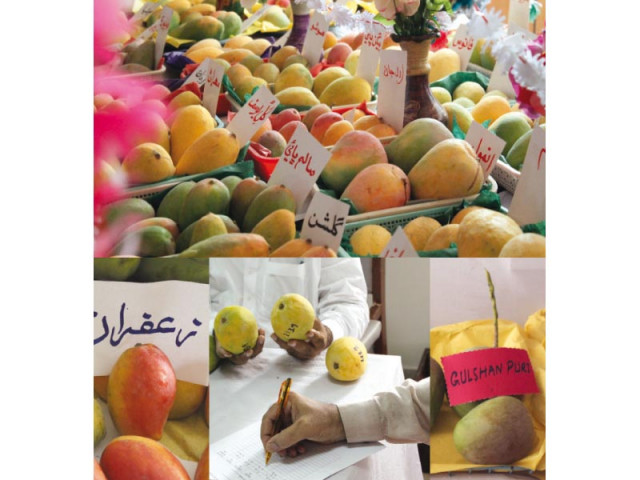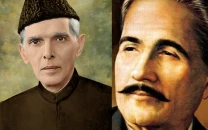King of fruits: Come and taste the khas mangoes of Mirpurkhas
A mango competition is held every year.

King of fruits: Come and taste the khas mangoes of Mirpurkhas
If you’re looking for mangoes which are succulent and beautifully scented, then head towards Mirpurkhas —host of the National Mangoes and Summer Fruit Festival for the past 47 years.
The drive from Karachi leading up to the city, known for its mango cultivation, is lined with trees with red, green and yellow mangoes hanging from them. While the vendors can be found on the sideways of the roads, who offer the juiciest mangoes at the best prices available. The rates vary from Rs250 to Rs350 for crates of eight to 10 kilogrammes.
True to the tried and tested trick of the trade, the vendors offer free tasting of the mangoes to reel in the customers. The mangoes, whose reputation precedes them, are hailed as the best in Pakistan. “Not only are these famous within Sindh, these mangoes are sent all over Punjab,” said Sharif Iqbal, one of the growers who were displaying their mangoes at the exhibition, adding proudly “These mangoes can beat all others any given day.”
Size does matter
The mangoes of the 159 growers who participated in the three-day event were separated into three categories according to the area of their farms, with less than 50 acres falling into the C category, those between 50 and 100 acres classifying as B and more than 100 acres as A. The mangoes are compared within each category and prizes are given accordingly. The judges, all from the Sindh Agriculture University, Tandojam, sat in one room and closely inspected the mangoes which were labelled with numbers instead of the farm names to maintain impartiality. The criterions for the best mangoes were shape, smell, colour and size. The event ends today with the announcement of the winners.
Revival after 2011 floods
According to the organisers, the turnout at the festival was lower than before. Around 250 participants from Mirpurkhas alone were reported to attend in the previous years. In contrast, the participants this year came from different districts, including Hyderabad, Tando Mohmmad Khan, Tando Allahyar, Sanghar, Benazirabad, Umer Kot, Mithi, Ghotki, Naushehro Feroze and Matiari.
The Mirpurkhas Agriculture Department deputy director, Yar Mohammad Khaskheli, accounted the low number of growers to the 2011 floods. He said that mangoes were spread over 33,000 acres in Mirpurkhas till before last year but the floods and rain of 2011 destroyed almost 20 per cent of the farms, some dating back to 1904. “We have asked the government to provide free-of-cost plants to growers to help them revive their businesses,” said Khaskheli.
The Sufi Bashir Ever Green Nursery is one of the oldest mango nurseries in Pakistan. “It is Pakistan’s first nursery,” declared Chaudhry Ghulam Mohammad Arain.
Arain’s stall in the festival had 310 varieties of mangoes, the largest in the festival. “We export mangoes of different qualities which are rich in taste and attractive in shape,” he added confidently.
“Mango is the identity of Mirpurkhas across the world,” said the assistant research officer, Aneesur-Rehman. “We try our level best to promote this fruit.”
Many growers added that the festival provides them a chance to interact with the contractors directly and eliminate the middle man which goes a long way in saving cost. “By participating in the festival, the growers get the chance to introduce top quality mangoes,” said one of the winning farmers, Javed Ali Khoro.
Sindhri, Neelum, Chaunsa, Langra, Siroli, Bengan Pali, Alphansa, Saleh Bhai, Gulab Khasa, Zafran, Swarnarica, Dusheri, Anwar Ratool, Collector and Desi are some of the major varieties displayed in the festival.
Published in The Express Tribune, June 6th, 2012.



















COMMENTS
Comments are moderated and generally will be posted if they are on-topic and not abusive.
For more information, please see our Comments FAQ